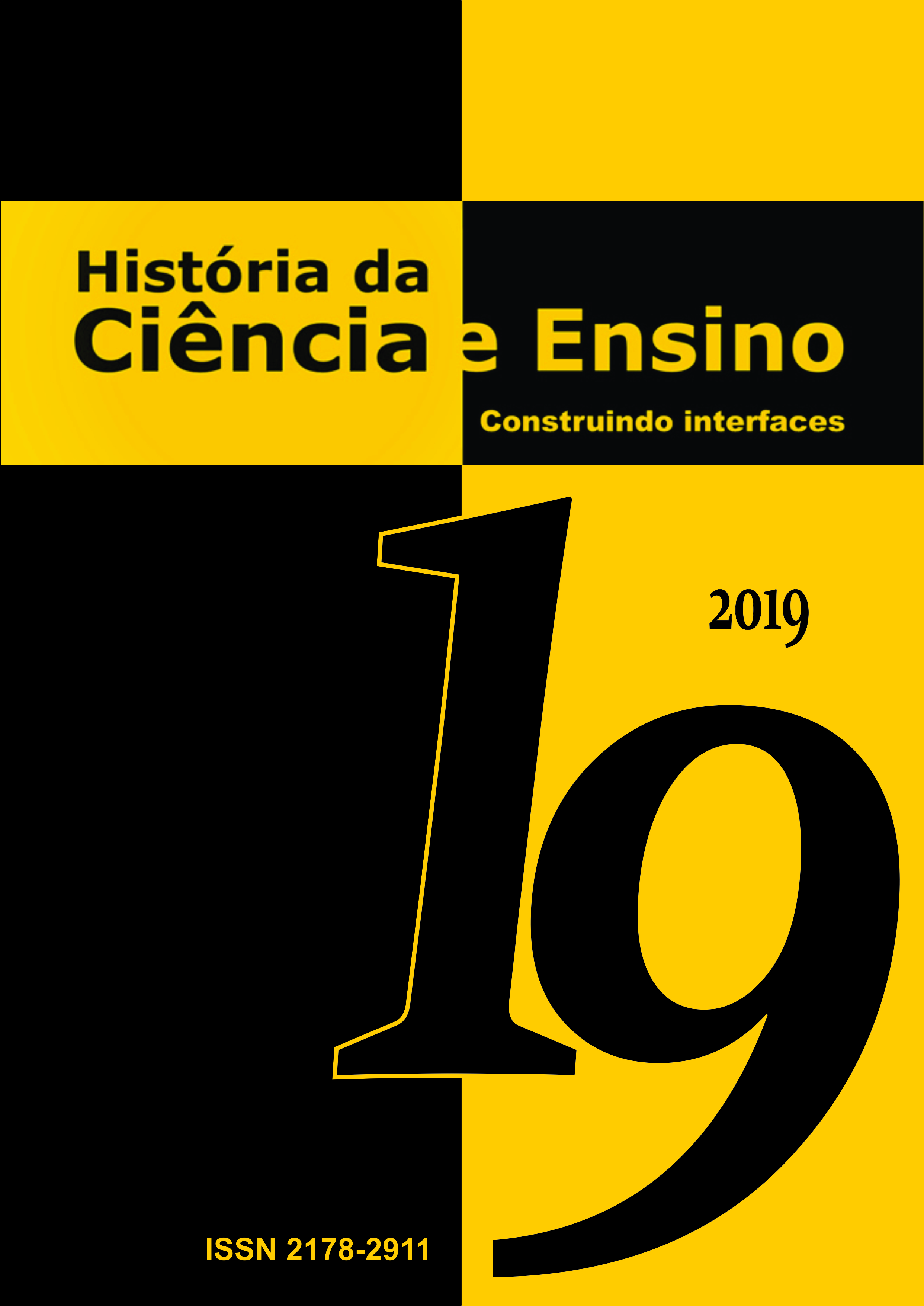Termodinâmica e Revolução industrial: Uma abordagem por meio da História Cultural da Ciência
DOI:
https://doi.org/10.23925/2178-2911.2019v19p71-97Abstract
Resumo
O Ensino de Ciências ainda apresenta vertentes que prezam por práticas pautadas predominantemente na repetição e memorização de exercícios. Essa abordagem leva a dificuldades de aprendizagem dos discentes, bem como, o desinteresse pela ciência e pelo seu processo de construção. Uma das formas de romper com essa abordagem trata-se da utilização da História Cultural Científica no qual a ciência é vista como integrante da cultura humana. Assim sendo, objetivamos elaborar um material didático em formato de texto narrativo histórico que contemplasse a abordagem cultural científica da Termodinâmica pautados nas abordagens internalista e externalista. Para isso utilizamos da pesquisa bibliográfica em fontes secundárias, com o intuito de elucidar as contribuições culturais e científicas da Revolução Industrial para o desenvolvimento da Termodinâmica. Deste modo, foi possível elucidar as necessidades sociais que foram predominantes para o aperfeiçoamento das máquinas térmicas e a evolução dos processos técnicos para os científicos que culminaram nas leis da Termodinâmica. Diante disso, a visão internalista e externalista, foram abordadas de forma integradas permitindo que a narrativa histórica seja uma possibilidade de abordagem da História Cultural Científica.
Palavras-chave: Estudo do Calor; História da Ciência; Máquinas Térmicas.
Abstract
The teaching of science still presents aspects that emphasize practices based predominantly on repetition and memorization of exercises. This approach leads to learning difficulties of students, as well as the lack of interest in science and its construction process. One of the ways to break with this approach is the use of scientific Cultural history in which science is seen as a member of human culture. Thus, we aim to elaborate a didactic material in a historical narrative format that contemfaced the scientific cultural approach of thermodynamics based on internalist and externalist approaches. For this we use the bibliographic research in secondary sources, with the aim of eluciding the cultural and scientific contributions of the Industrial Revolution for the development of thermodynamics. Thus, it was possible to elucidates the social needs that were predominant for the improvement of the thermal machines and the evolution of the technical processes for the scientific ones that culminated in the laws of thermodynamics. In view of this, the internalist and Externalist vision, were approached in an integrated way allowing the historical narrative to be a possibility of approaching the scientific Cultural history
Keywords: Heat Study; History of Science; Industrial Revolution.


